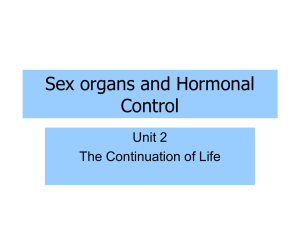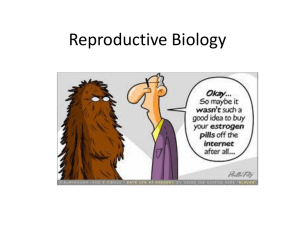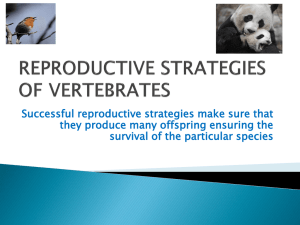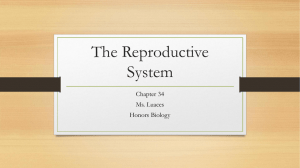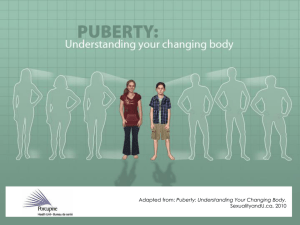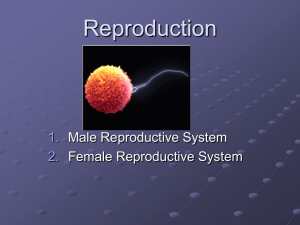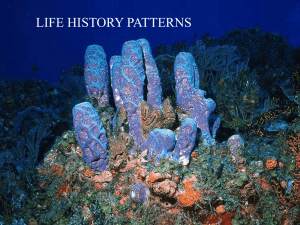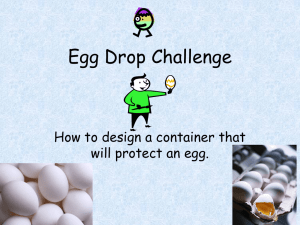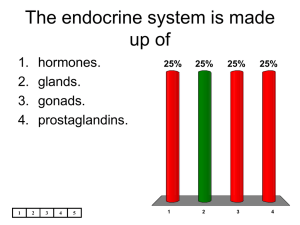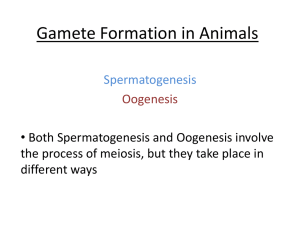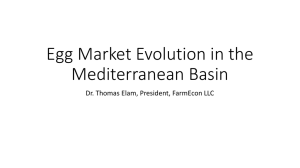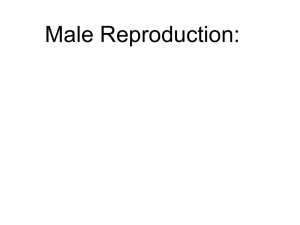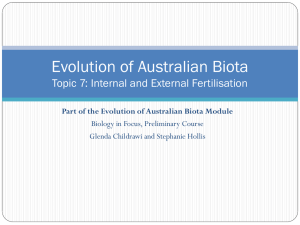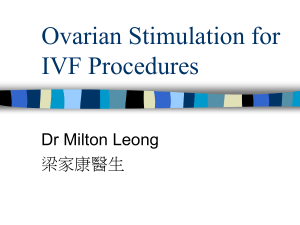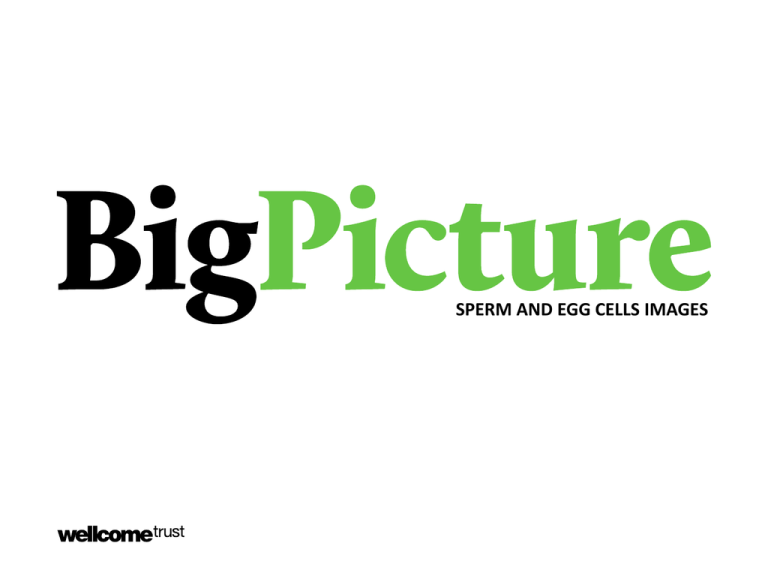
SPERM AND EGG CELLS IMAGES
Human
Humanegg
egg
A false-colour scanning electron micrograph of a human egg cell (gold) surrounded by cumulus cells (orange). Cumulus cells are specialised cells that nourish the large egg cell while it grows in the ovarian follicle.
Credit: Yorgos Nikas, Wellcome Images
Secondary oocyte during
Secondary
oocyte during in vitro fertilisation
in vitro fertilisation
A human secondary oocyte (which will later become an egg cell) during in vitro fertilisation, viewed with a light microscope using Nomarski optics, a technique used to highlight cell structure. The small cell at the bottom left is a
polar body.
Credit: Spike Walker, Wellcome Images.
BIGPICTUREEDUCATION.COM
Egg cell in follicle
Light microscopy image of a transverse cross-section of an immature egg cell (oocyte) in a maturing follicle. Once a month, during the female menstrual cycle, an oocyte matures in one of the many ovarian follicles. As the
follicle matures it increases in size, and different cell types are recruited to the developing follicle to support the oocyte before ovulation.
Credit: Dr Ivor Mason, King’s College London, Wellcome Images.
BIGPICTUREEDUCATION.COM
Egg and sperm
Light microscopy image showing sperm and an egg cell (or ovum) at the moment of conception during in vitro fertilisation. The egg is surrounded by protective cumulus cells around the outside surface, coloured yellow. The
sperm need to penetrate these cells and the membrane surrounding the egg, called the zona pellucida, if successful fertilisation is to occur.
Credit: Spike Walker, Wellcome Images.
BIGPICTUREEDUCATION.COM
Intracytoplasmic sperm injection
Digital artwork showing intracytoplasmic sperm injection (ICSI). ICSI is a method of in vitro fertilisation (IVF) that is used to treat infertile couples when standard IVF techniques are not likely to be successful. ICSI is the process of
injecting a single sperm cell directly into the egg; it is normally used when the male has a low sperm count or sperm motility is low and fertilisation is unlikely to occur naturally. This illustration shows the egg cell (ovum) being
held at the end of a micropipette. The egg is surrounded by cumulus cells, which provide nutrients to the egg.
Credit: Maurizio De Angelis, Wellcome Images.
BIGPICTUREEDUCATION.COM
Human sperm sample: average count
Light microscopy image of human sperm, showing a sample with average sperm count.
Credit: Dr Joyce Harper, UCL, Wellcome Images.
BIGPICTUREEDUCATION.COM
Human sperm sample: exceptional count
Light microscopy image of human sperm, showing a sample with an exceptional sperm count.
Credit: Dr Joyce Harper, UCL, Wellcome Images.
BIGPICTUREEDUCATION.COM
Abnormal sperm
Confocal microscopy image showing a variety of abnormal human sperm cells. Sperm with different types of head and tail defects surround a group of normal sperm in the centre.
Credit: Dr David Becker, Wellcome Images.
BIGPICTUREEDUCATION.COM
Sperm on the surface of an egg
Scanning electron microscopy image of numerous sperm trying to fertilise a human egg. In order to successfully fertilise the egg they need to find their way through the tough zona pellucida, the
membrane that surrounds and protects the egg.
Credit: Yorgos Nikas, Wellcome Images.
BIGPICTUREEDUCATION.COM
Seminiferous tubule
Confocal microscopy image of a cross-section through a seminiferous tubule showing the developing sperm; they can be seen as a row of cells with their tails pointing into the lumen (opening) of the
tubule. The nuclei are stained blue, and the mitochondria red. Sperm have a large number of mitochondria for energy to allow them to swim towards the egg.
Credit: MRC NIMR, Wellcome Images
BIGPICTUREEDUCATION.COM
Single sperm
Digital artwork of a sperm, showing the head, midpiece and tail. The head of the sperm is surrounded by an acrosome ‘cap’ (blue), which contains enzymes that help the sperm penetrate the outer
membrane of the egg to permit fertilisation. The midpiece contains large coiled a mitochondrion (gold) to provide energy to the tail, and two centrioloes (green), which are required for a viable
embryo.
Credit: Anna Tanczos, Wellcome Images
BIGPICTUREEDUCATION.COM
Section of a testis
Light microscopy image of a transverse cross-section through a testis. Staining of the tissue reveals the numerous seminiferous tubules - the location of sperm production. Between them are
interstitial cells that support sperm production.
Credit: Spike Walker, Wellcome Images.
BIGPICTUREEDUCATION.COM
Reusing our images
Images and illustrations
• All images, unless otherwise indicated, are from Wellcome Images.
• Contemporary images are free to use for educational purposes (they have a Creative Commons
Attribution, Non-commercial, No derivatives licence). Please make sure you credit them as we have
done on the site; the format is ‘Creator’s name, Wellcome Images’.
• Historical images have a Creative Commons Attribution 4.0 licence: they’re free to use in any way as
long as they’re credited to ‘Wellcome Library, London’.
• Flickr images that we have used have a Creative Commons Attribution 4.0 licence, meaning we –
and you – are free to use in any way as long as the original owner is credited.
• Cartoon illustrations are © Glen McBeth. We commission Glen to produce these illustrations for
‘Big Picture’. He is happy for teachers and students to use his illustrations in a classroom setting, but
for other uses, permission must be sought.
• We source other images from photo libraries such as Science Photo Library, Corbis and iStock and
will acknowledge in an image’s credit if this is the case. We do not hold the rights to these images,
so if you would like to reproduce them, you will need to contact the photo library directly.
• If you’re unsure about whether you can use or republish a piece of content, just get in touch with
us at bigpicture@wellcome.ac.uk.

